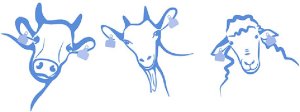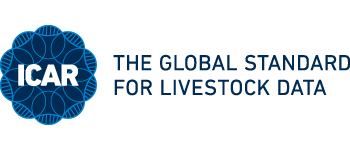African Symposium on “Animal identification and recording (AIR) systems for traceability and livestock development in sub-Saharan Africa”
14-16 April 2015, Pretoria (South Africa)
- Presented files

- Posters
- Videos of the speeches
- Pictures
- Pretoria Declaration (English)
- Sponsors of the Symposium are listed here
Introductory frame of livestock production in the World
Livestock is one of the most important and fastest growing agricultural subsectors in developing countries, fuelled by an unprecedented increase in demand for food of animal origin. However, production is increasing more slowly in sub-Saharan Africa than in other regions of the world. Average yields per animal are relatively low. The growth of livestock production and productivity has therefore not been sufficient to keep pace with the demands of expanding populations. This has led to increasing levels of imports of livestock products into Africa, currently valued at close to US$2.3 billion per year and projected to increase further
Introductory frame of Animal identification and traceability (AIT) and performance recording (PR) in Africa
Animal identification and traceability (AIT) play a key role in animal health and disease control. AIT systems help countries to put in place measures such as surveillance, early detection and notification of disease outbreaks, rapid response, control of animal movements, and zoning or compartmentalization. International trade in food products is rapidly changing.
In Africa, some countries (e.g. Namibia and Swaziland) have developed traceability systems to enable them to comply with international standards, and others (e.g. the United Republic of Tanzania) are in the process of doing so. These developments are also driven by increasingly stringent requirements in domestic markets, notably with regard to food safety.
Animal identification and performance recording (PR) are key to genetic improvement and to better herd and flock management, and thus to increased productivity. In Africa, this has been amply demonstrated in South Africa, where decades of performance recording have resulted in remarkable improvements in animal performance in the commercial sector
In summary, AIT&PR serve several purposes:
• Increasing food safety
• Facilitating market access and trade
• Improving animal health
• Reducing stock theft
• Facilitating genetic improvement
• Improving herd management
• Improving product quality
The Symposium
The symposium aims to raise awareness of the importance of AIT&PR to livestock development and food security and promote its implementation. The Symposium will be used as a platform to:
• Outline the benefits and beneficiaries
• Discuss past and ongoing regional and national activities (public and private)
• Review legal, technical and operational concepts of AIT&PR and their application in African countries
• Identify the conditions for successful, cost- effective and sustainable AIT&PR
• Call for actions to foster the implementation of AIT&PR systems in the region through public–private partnerships
The target audience
• National authorities, including Chief Veterinary Officers and Chiefs of Livestock Departments
• Regulatory and standard-setting bodies
• Funding and development agencies
• Private sector – cooperatives, breed associations, manufacturers, etc.
• Technical experts
Organization
The symposium is organized by FAO, ICAR and DAFF, in collaboration with the Agricultural Research Council of South Africa and the Stud Book and Animal Improvement Association
FAO expertise
Recognizing the multipurpose nature of AIT&PR, FAO has developed an integrated approach that involves all relevant stakeholders in a country. FAO has been supporting several countries in the preparation of legislation related to AIT&PR and in the design and implementation of national AIT&PR systems. Guidelines to assist with the establishment of such systems in low and medium input systems are being developed.
Previous workshops
FAO and the ICAR have organized several workshops on AIT&PR. These workshops took place in India (1997), Poland (1998), Slovenia (2000), Switzerland (2002), Tunisia (2004), Finland (2006) and Chile (2011).
